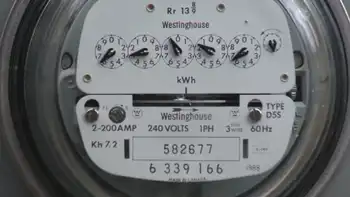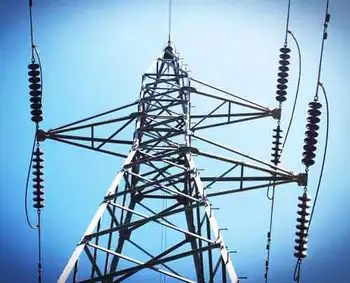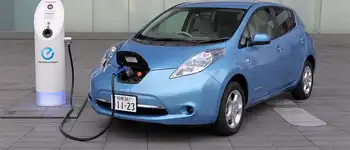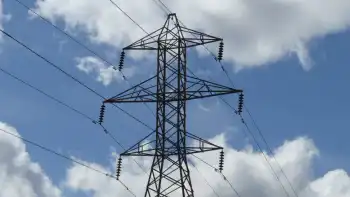EV Subsidies in Canada influence greenhouse-gas emissions based on electricity grid mix; in Ontario and Quebec they reduce pollution, while fossil-fuel grids blunt benefits. Compare costs per tonne with carbon tax and renewable energy policies.
Key Points
Government rebates for electric vehicles, whose emissions impact and cost-effectiveness depend on provincial grid mix.
✅ Impact varies by grid emissions; clean hydro-nuclear cuts CO2.
✅ MEI estimates up to $523 per tonne vs $50 carbon price.
✅ Best value: tax carbon; target renewables, efficiency, hybrids.
Bad ideas sometimes look better, and sell better, than good ones – as with the proclaimed electric-car revolution that policymakers tout today. Not always, or else Canada wouldn’t be the mostly well-run place that it is. But sometimes politicians embrace a less-than-best policy – because its attractive appearance may make it more likely to win the popularity contest, right now, even though it will fail in the long run.
The most seasoned political advisers know it. Pollsters too. Voters, in contrast, don’t know what they don’t know, which is why bad policy often triumphs. At first glance, the wrong sometimes looks like it must be right, while better and best give the appearance of being bad and worst.
This week, the Montreal Economic Institute put out a study on the costs and benefits of taxpayer subsidies for electric cars. They considered the logic of the huge amounts of money being offered to purchasers in the country’s two largest provinces. In Quebec, if you buy an electric vehicle, the government will give you up to $8,000; in Ontario, buying an electric car or truck entitles you to a cheque from the taxpayer of between $6,000 and $14,000. The subsidies are rich because the cars aren’t cheap.
Will putting more electric cars on the road lower greenhouse-gas emissions? Yes – in some provinces, where they can be better for the planet when the grid is clean. But it all depends on how a province generates electricity. In places like Alberta, Saskatchewan, Nova Scotia and Nunavut territory, where most electricity comes from burning fossil fuels, an electric car may actually generate more greenhouse gases than one running on traditional gasoline. The tailpipe of an electric vehicle may not have any emissions. But quite a lot of emissions may have been generated to produce the power that went to the socket that charged it.
A few years ago, University of Toronto engineering professor Christopher Kennedy estimated that electric cars are only less polluting than the gasoline vehicles they replace when the local electrical grid produces a good chunk of its power from renewable sources – thereby lowering emissions to less than roughly 600 tonnes of CO2 per gigawatt hour.
Unfortunately, the electricity-generating systems in lots of places – from India to China to many American states – are well above that threshold. In those jurisdictions, an electric car will be powered in whole or in large part by electricity created from the burning of a fossil fuel, such as coal. As a result, that car, though carrying the green monicker of “electric,” is likely to be more polluting than a less costly model with an internal combustion or hybrid engine.
The same goes for the Canadian juridictions mentioned above. Their electricity is dirtier, so operating an electric car there won’t be very green. Alberta, for example, is aiming to generate 30 per cent of its electricity from renewable sources by 2030 – which means that the other 70 per cent of its electricity will still come from fossil fuels. (Today, the figure is even higher.) An Albertan trading in a gasoline car for an electric vehicle is making a statement – just not the one he or she likely has in mind.
In Ontario and Quebec, however, most electricity is generated from non-polluting sources, even though Canada still produced 18% from fossil fuels in 2019 overall. Nearly all of Quebec’s power comes from hydro, and more than 90 per cent of Ontario’s electricity is from zero-emission generation, mainly hydro and nuclear. British Columbia, Manitoba and Newfoundland and Labrador also produce the bulk of their electricity from hydro. Electric cars in those provinces, powered as they are by mostly clean electricity, should reduce emissions, relative to gas-powered cars.
But here’s the rub: Electric cars are currently expensive, and, as a recent survey shows, consequently not all that popular. Ontario and Quebec introduced those big subsidies in an attempt to get people to buy them. Those subsidies will surely put more electric cars on the road and in the driveways of (mostly wealthy) people. It will be a very visible policy – hey, look at all those electrics on the highway and at the mall!
However, that result will be achieved at great cost. According to the MEI, for Ontario to reach its goal of electrics constituting 5 per cent of new vehicles sold, the province will have to dish out up to $8.6-billion in subsidies over the next 13 years.
And the environmental benefits achieved? Again, according to the MEI estimate, that huge sum will lower the province’s greenhouse-gas emissions by just 2.4 per cent. If the MEI’s estimate is right, that’s far too many bucks for far too small an environmental bang.
Here’s another way to look at it: How much does it cost to reduce greenhouse-gas emissions by other means? Well, B.C.’s current carbon tax is $30 a tonne, or a little less than 7 cents on a litre of gasoline. It has caused GHG emissions per unit of GDP to fall in small but meaningful ways, thanks to consumers and businesses making millions of little, unspectacular decisions to reduce their energy costs. The federal government wants all provinces to impose a cost equivalent to $50 a tonne – and every economic model says that extra cost will make a dent in greenhouse-gas emissions, though in ways that will not involve politicians getting to cut any ribbons or hold parades.
What’s the effective cost of Ontario’s subsidy for electric cars? The MEI pegs it at $523 per tonne. Yes, that subsidy will lower emissions. It just does so in what appears to be the most expensive and inefficient way possible, rather than the cheapest way, namely a simple, boring and mildly painful carbon tax.
Electric vehicles are an amazing technology. But they’ve also become a way of expressing something that’s come to be known as “virtue signalling.” A government that wants to look green sees logic in throwing money at such an obvious, on-brand symbol, or touting a 2035 EV mandate as evidence of ambition. But the result is an off-target policy – and a signal that is mostly noise.
Related News












